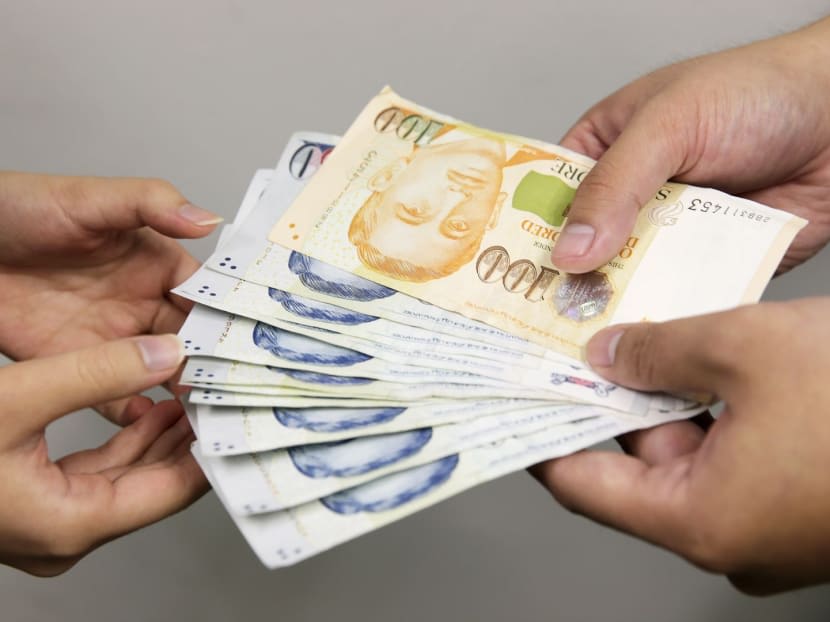Tighter laws to target syndicated scams and to hold money mules criminally accountable
SINGAPORE — Legislative changes were flagged in Parliament on Monday (Feb 27) to tackle syndicated scams and also target money mules who assist scammers to launder their criminal proceeds.

The tighter law will target "money mules" who provide their bank accounts to help scammers launder their ill-gotten gains.
- New measures to combat scams are to be introduced into Parliament, including holding "money mules" criminally accountable for their conduct
- Currently, the majority of money mule investigations do not result in prosecution
- The proposed amendment to the law will set out specific conduct for which money mules can be held criminally liable
- The Online Criminal Harms Act will also be introduced later this year to combat online harm such as syndicated scams and the incitement of mass public disorder
SINGAPORE — Legislative changes were flagged in Parliament on Monday (Feb 27) to tackle syndicated scams and also target money mules who assist scammers to launder their criminal proceeds.
The measures are the latest effort by the authorities to tackle the increasingly sophisticated scourge of scams, which are costing a growing number of Singapore victims hundreds of millions of dollars a year.
Minister of State for Home Affairs Sun Xueling said on Monday that the law will be tightened so that money mules can be held criminally liable for their conduct.
Ms Sun, who was speaking in Parliament during the debate for her ministry's budget, said that currently, the "vast majority" of money mule investigations do not result in prosecution.
"Based on current laws, we need to prove that the money mule knew that the monies he was handling were linked to criminal activity," she said, adding that the amended law would set out specific conduct for which money mules could be held liable.
During the debate, it was also announced that legislation will be introduced later this year to counter online harm such as syndicated scams and the incitement of mass public disorder.
The issue of scams was extensively debated in Parliament on Monday, with several Members of Parliament pointing out the increased prevalence of this illegal conduct.
In 2022, there were 31,728 scam cases, an increase of 32.6 per cent from 2021, while the total amount lost from scams was more than S$660 million, a 4.5 per cent increase from 2021.
HOLDING MONEY MULES CRIMINALLY ACCOUNTABLE
The bank accounts of money mules are used by criminals to transfer illegally acquired money. These mules may or may not have knowledge of criminal activities taking place.
Ms Sun spoke about the ministry's plans to combat scams by reducing the prevalence of money mule accounts and to lower the incidence of people selling their personal details and bank accounts for this purpose.
Given that most money mule investigations currently do not result in prosecution, Ms Sun said that the ministry intends to tighten the law to tackle these mules, who help to facilitate the movement of scam monies.
MHA will seek to amend the Corruption, Drug Trafficking and Other Serious Crimes (Confiscation of Benefits) Act to prescribe specific conduct for which mules can be held criminally liable, she said.
“Scammed monies are laundered through multiple mule accounts, rendering them challenging to trace. Complicated mule networks impede the police’s efforts to identify the perpetrators and recover monies.Minister of State for Home Affairs Sun Xueling”
ADDITIONAL LEGISLATION AGAINST ONLINE HARMS
Second Minister for Home Affairs Josephine Teo said that legislation will also be introduced later this year to counter specific online crimes.
Mrs Teo said that over the years, the Government has taken steps to deal with different types of harmful online content and behaviours.
These include introducing the Protection from Online Falsehoods and Manipulation Act (Pofma) and the Foreign Interference (Countermeasures) Act (Fica), to deal with online falsehoods and foreign interference.
The Broadcasting Act was also recently amended, to deal with harm that impacts user safety, such as through suicide and self-harm, cyberbullying, and content likely to undermine racial and religious harmony.
However, she said that there "remain gaps".
"There is online content which is criminal in their own right, or content which facilitates or abets such crimes," she said.
These include:
- Syndicated crimes such as scams
- Online incitement of mass public disorder
- Malicious cyber activities such as phishing and the distribution of malware.
Thus, the Online Criminal Harms Act will be introduced later this year to counter these specific online crimes, said Mrs Teo, as well as "build on our current laws" by:
- Expanding the scope of regulatory levers that be applied to online criminal activities, which includes powers to stop or remove online communications that facilitate crimes in the physical world, such as inciting violence
- Increasing the scope of entities the Government can act against. The law will cover all mediums of online communication through which criminal activities could be conducted
- Introducing levers that deal more effectively with the nature of the online criminal harm. For example, "upstream measures" will be introduced to detect and reduce sophisticated cyber-scams such as phishing
OTHER INITIATIVES TO COUNTER SCAMS
To curb the abuse of Singpass credentials as a "vector to perpetrate scams", Ms Sun shared that MHA is working with the Smart Nation and Digital Government Office on a legislative amendment to achieve this.
Another initiative to tackle scams is the expansion of the Government's ScamShield application, said Ms Sun.
The app protects users by blocking calls from known scam numbers and filtering out potential scam SMSes and also allows users to report scam calls and SMSes.
Ms Sun said that the ministry is working closely with the Government Technology Agency (GovTech) to roll out a new version of the app, ScamShield 2.0, which will include a WhatsApp chatbot for public to report scam messages.











